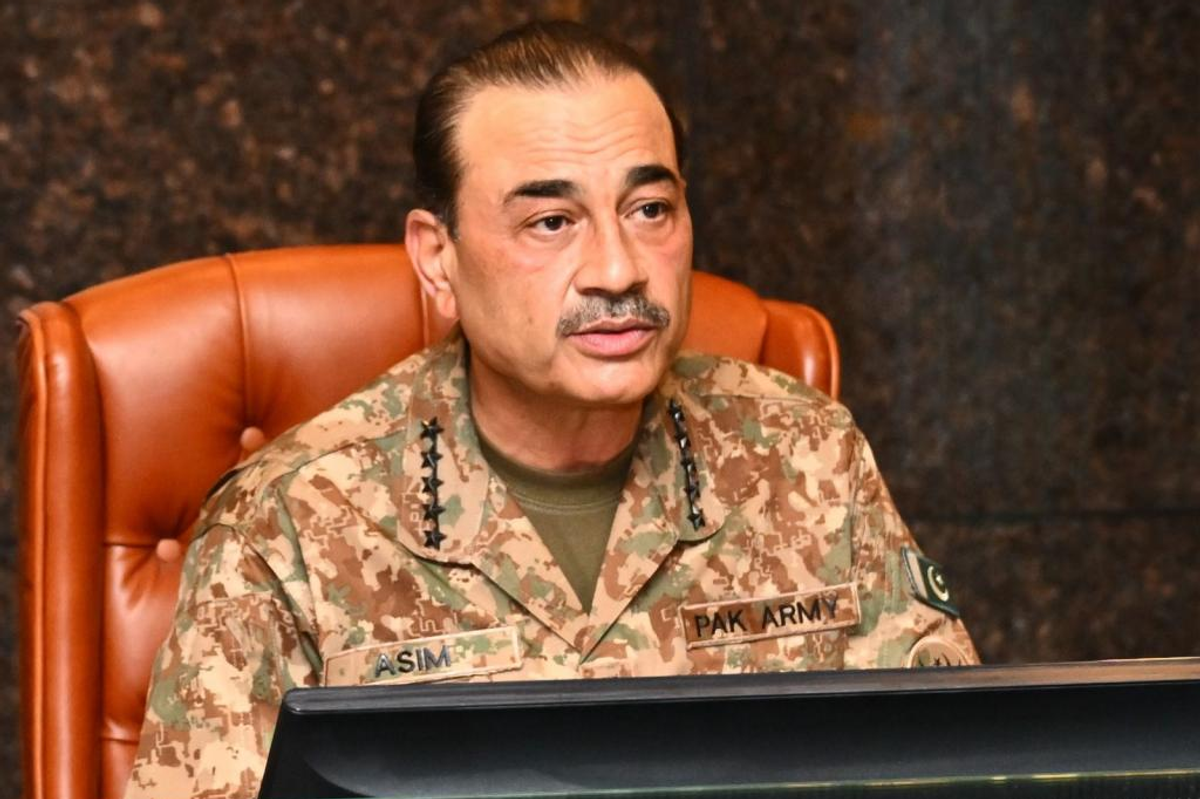Pakistan army chief rejects India’s allegations of foreign help in May conflict
COAS Asim Munir said that Indian claims are baseless insinuations aimed at offsetting India’s comprehensive defeat
News Desk
The News Desk provides timely and factual coverage of national and international events, with an emphasis on accuracy and clarity.

COAS Field Marshal Syed Asim Munir chaired the 271st Corps Commanders’ Conference (CCC) at the General Headquarters (GHQ) in Rawalpindi.
ISPR
Pakistan's top military commander Field Marshal Syed Asim Munir on Thursday dismissed India’s accusations that Pakistan received military and strategic assistance from China and Turkey during the May conflict between the two nuclear-armed neighbors.
The army chief, while chairing the 271st Corps Commanders’ Conference at General Headquarters (GHQ) in Rawalpindi, said that Indian claims are baseless insinuations aimed at offsetting India’s comprehensive defeat.
“Invoking third parties in what is unmistakably a bilateral military confrontation reflects a disingenuous attempt at bloc politics aimed at falsely projecting India’s self-assigned role as a net security provider to accrue benefits in a region that is visibly growing disillusioned with Indian hegemonic ambitions and Hindutva-driven extremism,” he added.
India’s Deputy Army Chief, Lt. Gen. Rahul Singh, had claimed that China provided “live inputs” to Pakistan about key Indian positions during the May conflict, which followed India’s attack on multiple Pakistani cities after the Pahalgam incident. Pakistan responded by launching Operation Bunyanum Marsoos, targeting Indian military installations.
Singh also alleged that Turkey equipped Pakistan with Bayraktar drones, other UAVs, and trained individuals.
Gains against proxies
Pakistan military’s media wing, in a statement, confirmed that recent gains against terrorist proxies were also reviewed during the conference.
“The Forum resolved that the blood of the Shuhada (martyrs) will not go to waste. The safety and security of the people of Pakistan remain the topmost priority,” the statement issued by the Inter-Services Public Relations (ISPR) said.
The military accused India of using proxies, including Fitna Al-Khawarij and Fitna Al-Hindustan, to destabilize the country following its defeat in direct conflict.
Pakistan has also previously accused India of sponsoring terrorism in Balochistan and Khyber Pakhtunkhwa. During a grand jirga in Quetta last month, Pakistan’s civil-military leadership vowed to eliminate all foreign-backed terror networks.
Field Marshal Munir, while addressing the participants of the jirga, said that the military possesses “concrete proof” of India’s involvement in Balochistan militancy, calling it “an open malicious act of terrorism.”
Regional and global diplomacy
The conference also reviewed Pakistan’s diplomatic engagements, including recent visits to Iran, Turkey, Azerbaijan, Saudi Arabia, and the UAE, where the army chief accompanied Prime Minister Shehbaz Sharif.
The forum was also briefed on Field Marshal Munir’s recent visit to the United States, where he met President Donald Trump.
President Trump, during a White House lunch, thanked COAS Munir for helping avert a full-scale war with India and expressed interest in a “mutually beneficial trade partnership” with Pakistan.
The U.S. president, while speaking to reporters after the meeting, confirmed that Iran was also discussed during his meeting with the army chief.
Iranian President Dr. Masoud Pezeshkian had also thanked Pakistan for its “vital role” in de-escalating recent tensions with Israel. The acknowledgment came during a meeting with Prime Minister Sharif on the sidelines of the 17th ECO Summit in Khankendi, Azerbaijan.
Internal and external security
The forum also conducted a comprehensive review of internal and external security, especially developments in the Middle East and the increasing global trend of using force as a policy tool.
The army chief emphasized the need for self-reliant defense capabilities and national unity, commending the Navy and Air Force for enhancing tri-services synergy.
He expressed full confidence in the operational readiness of the Pakistan Army “against the complete threat spectrum.”










Comments
See what people are discussing